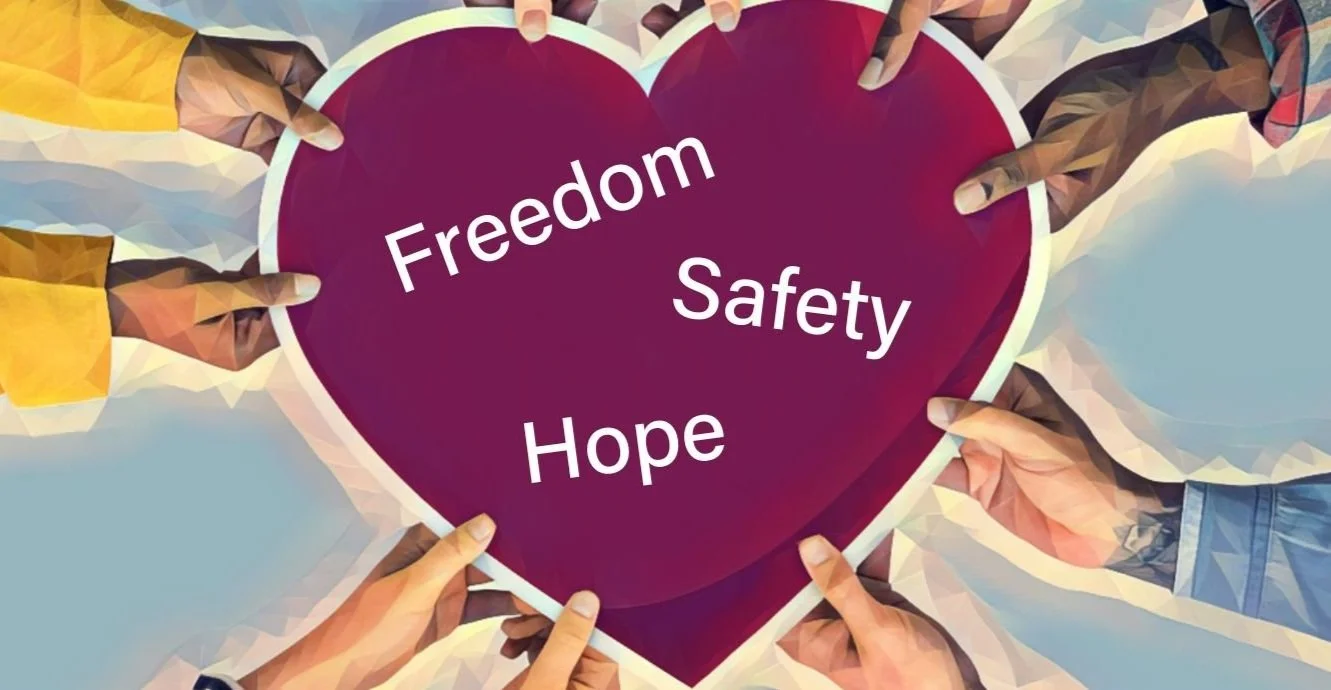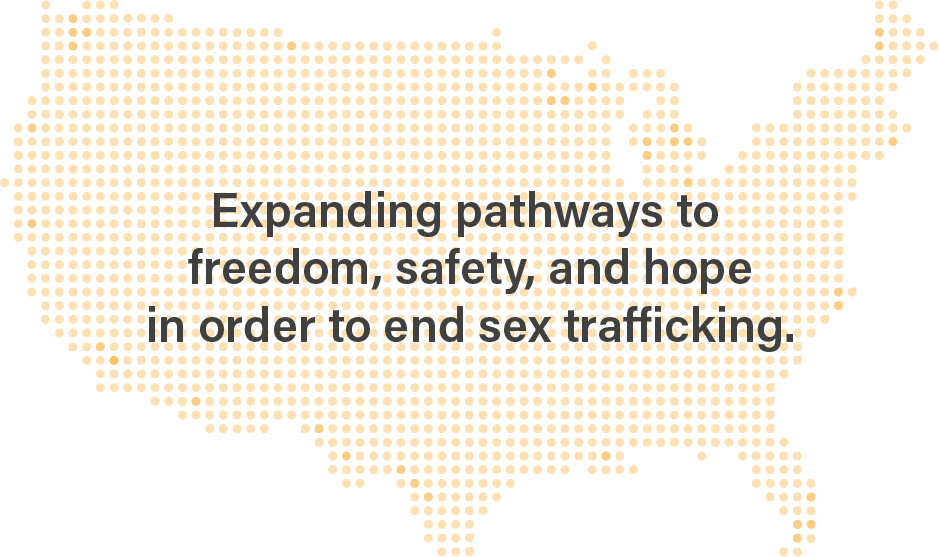The work of REST began on the streets of Seattle, building relationships with people involved in the sex trade, the majority of whom were being trafficked. In theory, we had a simple objective: build trust, ask what they need, and make sure they get it. And if we discovered that what they needed didn’t exist or didn’t work, we committed to building it. In practice, we learned that very few services were designed to meet the needs of survivors of trafficking and failed to accommodate for the, often, years of complex trauma they’ve endured.
We ended up building. A lot.
Thirteen years later, we’ve built one of the largest continuum of services designed by and dedicated for victims and survivors of sex trafficking in the United States. Over 600 individuals engage with REST each year, and more than 400 of them enroll in one or more of our services like emergency shelter, community-based advocacy, behavioral health, economic empowerment, transitional housing, or permanent housing. Our impact measurement model enables us to implement continuous improvement within our services and ensure survivors have the greatest opportunity to recover from trafficking and achieve their goals.
We successfully advanced our founding mission to provide pathways to freedom, safety, and hope for victims of sex trafficking and people involved in the sex trade.
Given our history of successful growth, it might surprise you then to know that we embarked on a strategic planning initiative to ask ourselves if we were doing the right things. We wanted to consider our way forward in light of a community-first approach to nonprofit leadership, in which we believe that a nonprofit exists to eradicate systems of harm, rather than merely treat symptoms of harmful systems. This is not a new approach for us, but it was helpful to step back and ask if we were still on the right path and operating with an obvious long-term objective for the organization. This led us to unanimously simplify and embolden our mission statement, which now reads:
REST exists to expand pathways to freedom, safety, and hope in order to end sex trafficking.
Did you feel a little spark ignite in your spirit? We feel it too!
There are three important changes we want to highlight:
We changed the word “provide” to “expand” in order to emphasize a multiplying effect as we work with partners and other organizations around the country to expand pathways to freedom, safety, and hope.
We removed specific language about the “who” we provide pathways for in order to create space for strategic activities that we believe will contribute to the end of sex trafficking but are not specifically direct service efforts.
We added a clear, bold, and long-term aim for REST: to end sex trafficking. This will act as a litmus test for all of our work as we move forward and multiply our impact. We must be certain that our services, our partnerships, and our projects contribute to the end of sex trafficking.
The important things will stay the same.
We will continue providing direct services with survivors as our core work, and our Statement of Faith and organizational values will carry us forward. Our underlying belief that everyone is worthy of love and deserves to live a life without exploitation continues to be the heartbeat of REST and will guide us in how we expand pathways to freedom, safety, and hope in order to end sex trafficking.
Huge thanks to everyone who helped inform the future of REST!
Thank you to Lindsey T.H. Jackson, Founder and CEO of DEI Consulting Firm, LTHJ Global, Inc, who led REST through a 9-month initiative to embed diversity, equity, and inclusion throughout the organization. It was Lindsey’s guidance about community-first nonprofits that reminded us of our roots and launched us into a strategic planning initiative.
Thank you to the dozens of survivors, employees, partners, donors, and community members who weighed in via interviews, focus groups, and surveys to share their recommendations for the future of REST.
Thank you to Janet Jensen with The Jensen Project, for providing REST Leadership with a grant to participate in a STRATOP process to clarify our purpose and build out our strategic plan.
Thank you to all of those who lifted REST up in prayer as we considered our path forward.
Coming up next: The Future of REST Part 2: Expanding Pathways. The next blog in our series will highlight our newly adopted five-year strategic plan and how we hope to multiply our impact.









